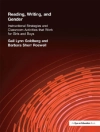Over time, the role of nature in anthropology has evolved from being a mere backdrop for social and cultural diversity to being viewed as an integral part of the ontological entanglement of human and nonhuman agents. This transformation of the role of nature offers important insight into the relationships between diverse anthropological traditions. By highlighting natural-cultural worlds alongside these traditions, Multiple Nature-Cultures, Diverse Anthropologies explores the potential for creating more sophisticated conjunctions of anthropological knowledge and practice.
Daftar Isi
Introduction: Minor Traditions, Shizen Equivocations, and Sophisticated Conjunctions
Casper Bruun Jensen and Atsuro Morita
Chapter 1. Naturalism and the Invention of Identity
Marilyn Strathern
Chapter 2. Between Two Truths: Time in Physics and Fiji
Naoki Kasuga
Chapter 3. Natures of Naturalism: Reaching Bedrock in Climate Science
Martin Skrydstrup
Chapter 4. Raw Data: Making Relations Matter
Antonia Walford
Chapter 5. Methods for Multispecies Anthropology: Thinking with Salmon Otoliths and Scales
Heather Anne Swanson
Chapter 6. A Theory of ‘Animal Borders’: Thoughts and Practices toward Non-human Animals among the G|ui Hunter-Gatherers
Kazuyoshi Sugawara
Chapter 7. Delta Ontologies: Infrastructural Transformations in the Chao Phraya Delta, Thailand
Atsuro Morita and Casper Bruun Jensen
Chapter 8. The Ontological Turn: Taking Different Worlds Seriously
Andrew Pickering
Tentang Penulis
Casper Bruun Jensen is honorary lecturer at Leicester University. He is the author of Ontologies for Developing Things (Sense, 2010) and Monitoring Movements in Development Aid (with Brit Ross Winthereik) (2013, MIT) and the editor of Deleuzian Intersections: Science, Technology, Anthropology with Kjetil Rödje (Berghahn, 2009) and Infrastructures and Social Complexity with Penny Harvey and Atsuro Morita (Routledge, 2016).












